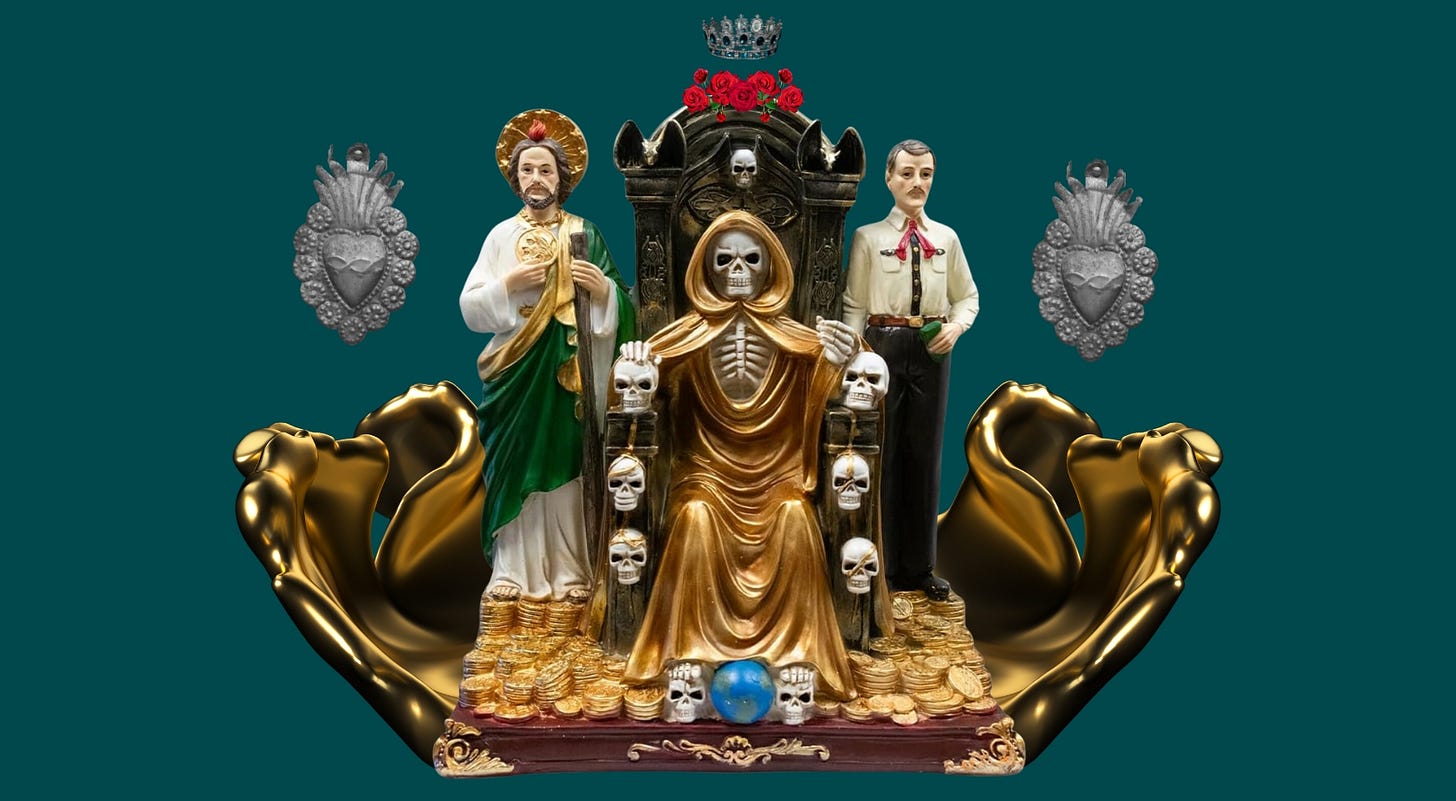Luigi, Diddy, and the Future of America's Relationship With Rule of Law
Scribbles from the regenerative ruins of a dying empire on what it means to form a secular society together.
So I have been paying attention to Magione's new attorney, Karen Friedman Agnifilio, for awhile now as a legal commentator. I did not realize, however, until this announcement that her husband - their shared practice, actually - is *also* representing P. Diddy in his legal troubles. I think this is a really important piece of information, but not for the reasons folks might assume.
In this country, everyone is rightfully entitled to vigorous and qualified defense under the law, even if you're caught in 4K doing the thing you're charged with. I know there are a lot, and I do mean a lot, of people with very strong opinions about the moral and ethical character of criminal defense attorneys (and, to a lesser extent and depending on your political praxis, prosecutors and similarly positioned counsel.) But in all actuality, these roles are occupied with much more complicated social, moral, and ethical tasks than many folks want to make it out to be. Has our society, at broad - even folks who pro-actively identify as abolitionist - really grappled with their own opinions about their *praxis* of social agreements and the law? Of the nature of the state? Law represents the generally codified logic of a society's relationships within itself and with the world at large (rights vs. responsibilities vs. obligations) -- and the existential framing of that perspective largely depends on collective work not ever subject to adjudication and collective debate (at least not within our current society.) Ethics, morals, justice, accountability, and the law are not the same. Those terms don't even have the same meaning to most people. I think we do a great disservice when we mislead people about what the function and purpose of law is vs. what it needs to be vs. what actual justice, accountability, and responsibility are in a socio-political, personalized context.
Outside of being on the receiving end of the only socially sanctioned way to call an undiagnosed, neurodivergent femme child an annoying bitch - by telling me I'd make a great lawyer - I am, in fact, not a lawyer. But I feel marginally comfortable saying that I believe that the law should serve the interests of equity and justice, but I understand it will never be the vehicle from which those things spring (notably, this is the same with class consciousness, but I digress.) Even in a most ideal and collectively liberated society, that would not be the case -- because while liberatory justice and the law can and should, ideally, twain, the purpose of law and our current theory of law is centrally about the maintenance of social order and cohesion, which by its nature is going to conflict with (r)evolutionary change. Because the law is built to provide consistency, not evolution. This is a whole universe of discussion that is only barely within my most general understanding, so Imma leave this here for now.
In a truly liberated society, the unavoidable reality is that the likes of P. Diddy - who allegedly ruptured the social contract because he's a vile individual who felt entitled to abuse and terrorize others who would not bend to his well - deserves the same level of defense of his human rights and inherent dignity, irrespective of his violence, as Luigi Mangione, a person who allegedly ruptured the social contract because he was impelled to act in response to the suffering inflicted on him by both his target and the people who enabled his target. And the same person(s) can make representation for both, do so well, and that is a good thing despite the former individual being horrific. Our instinct is to assume that anyone who could or would offer a defense of the inalienable, inherent dignity of a human horror movie is likewise a monster. I hope this gets people to rethink their default biases and assumptions not only about how we judge folks before the law, but also how our society responds to violence, including the violence we freely consent to be party to.
The same law firm representing these two VERY starkly different individuals - simultaneously - in the public eye, is going to force this country to have a much more complex and very necessary moment of ethical grappling: not only about what is just and fair, but with how we exist in relationship with violence, who gets to do said violence, when, and to whom, but also about law enforcement and the fundamental architecture of our legal system(s). I think these cases being in the public mind together are going to significantly redefine our relationship with the idea of "rule of law", and what that can or should mean. Oddly, that’s what also happens when you hand fascists the keys to the burning care vs. choosing each other instead: suddenly everybody gets hip to the fact that the law is shaped by the labor and work that lies beyond the scope of the law itself. Fancy that!
So...what are we going to do about that?
I honestly don't know.
I, personally, will be revisiting Proudhon and reading up on anarchist legal theory in my fleeting spare time.
(And figuring out how to become a gym girly so I can self-medicate through the fucking doozy, bullshiterous hot takes I know this is all gonna produce 🥴)
Support This Publication
By becoming a paid subscriber (starting at $4.50 USD/month), you’re enabling me to honor my rhythm as a creative, produce quality work that is meaningful and not driven by profitability or brand appeal, and thus fills the world with art that has meaning rather than content built solely to convert a sale.





